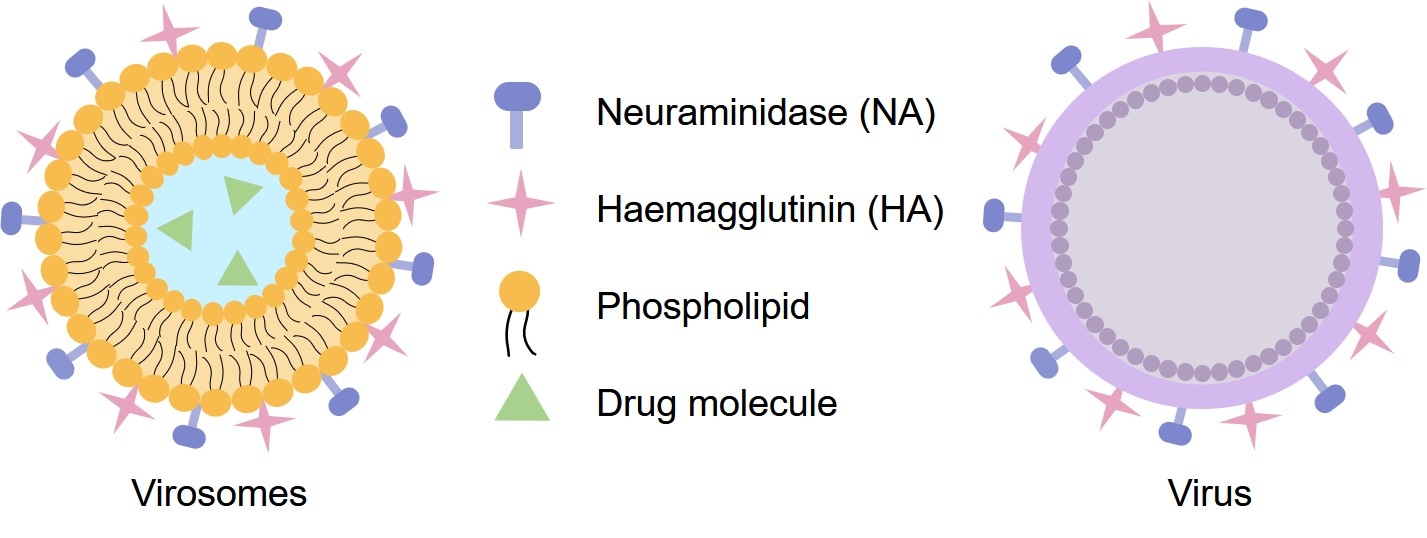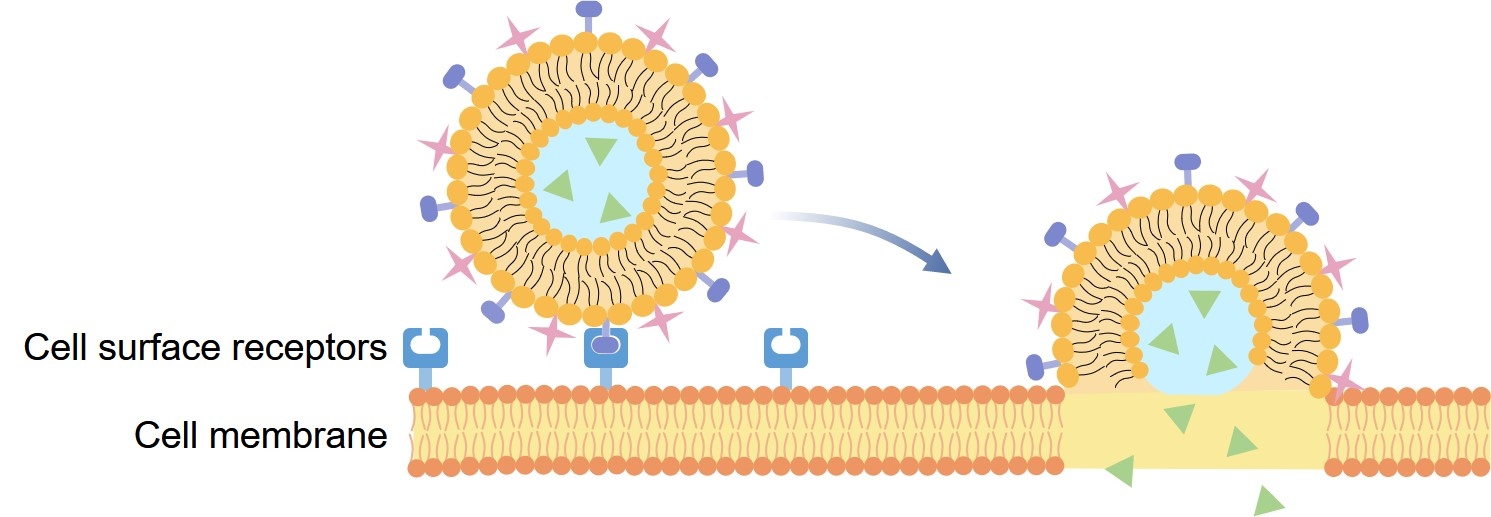As a leader in the field of targeted delivery system research and development, Creative Biolabs is committed to providing the most comprehensive liposome development services for our global clients. Creative Biolabs has accumulated abundant experience in the successful completion of many targeted delivery system-related projects.
Virosomes are a type of reconstituted viral envelopes composed of membrane lipids and viral spike glycoproteins, which avoid viral genetic material. Virosomal technology has been used in vaccines delivery successfully for many years. Influenza virus is most widely used for virosome production. They are spherical, unilamellar vesicle structure with a mean diameter of 150 nm. Virosomes are not able to replicate but are pure fusion-active vesicles. Virosomes contain functional viral envelope glycoproteins compared with liposomes, i.e. influenza virus hemagglutinin (HA) and neuraminidase (NA) intercalated in the phospholipid bilayer membrane. Different bilayer components of virosomes possess distinct characteristics.
 Fig.1 Composition of a virosome derived from virus.
Fig.1 Composition of a virosome derived from virus.
The virosome presents one of the optimal drug delivery systems and it can be optimized for maximum incorporation of the drug or the best physiological effect by modifying the content or type of lipids in the membrane. On the surface of the virosomes, a variety of ligands like cytokines, peptides and monoclonal antibodies can be adopted. Besides, tumor-specific monoclonal antibody fragments (Fab) also can be linked to virosomes for targeting the carrier to selected tumor cells. For the targeted delivery of the encapsulated drugs, virosomes selectively recognize through binding molecules to the target cell. Virosomal HA induces receptor-mediated uptake of the virosome into an endosome in the target cell. The endolysosomal pathway can protect the drug from degradation because the drugs are transported directly into the cytosol of the cell. This feature of virosomes is especially critical for cancer therapies, which often have severe side effects because of the toxicity of the agents. The mechanism of protection of incorporated pharmaceutically active substances is a major advantage of the virosomal carrier system and is clearly distinct from other liposomal and proteoliposomal carrier systems.
 Fig.2 Mechanism of drug delivery to the target cell using virosome technology.
Fig.2 Mechanism of drug delivery to the target cell using virosome technology.
Virosomes represent an innovative, broadly applicable drug carrier systems that have been applied commonly in various treatments and preventions of cancer, neurodegenerative disorders and infectious diseases. To date, a large number of pharmaceutically active substances like antibiotics, cytostatics, nucleic acids, fungicides and antigens can be encapsulated into the virosomal carrier.
Creative Biolabs is capable of providing the largest and diversiform portfolio of LDD services. Please contact us for more information.
 For Research Use Only. Not For Clinical Use
For Research Use Only. Not For Clinical UseSupports
Online Inquiry